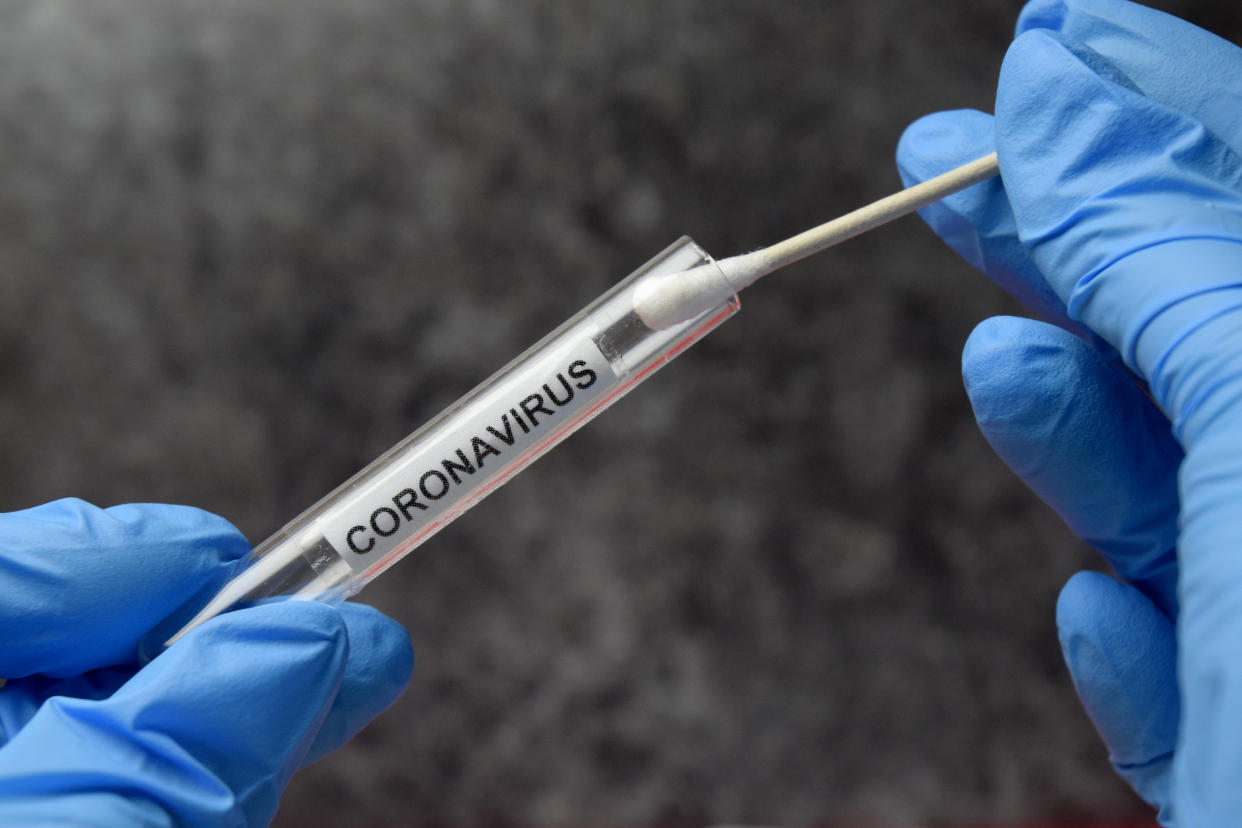Harvard scientist calls for ‘crappy’ coronavirus tests that give results in just 15 minutes

As officials around the world grapple to get a handle on the coronavirus outbreak, widespread testing has often been hailed as a route back to normality.
Early in the pandemic, the World Health Organization’s director-general, Dr Tedros Adhanom Ghebreyesus, announced his “key message: test, test, test”.
By identifying those with the virus, infectious individuals can isolate, stemming the spread of the outbreak.
Perhaps surprisingly, one Harvard scientist is now calling for more “crappy” coronavirus tests.
Read more: Reopening schools 'could trigger second peak' if test and trace isn't improved
Dr Michael Mina, assistant professor of epidemiology at the prestigious university, has argued the roll out of “high-end expensive tests” means many Americans are not getting swabbed.
More speedy tests that cost as little as $1 (76p), but may not be as accurate, could be carried out several times a week across the entire US population, he added.
In the UK, “on the spot” swabs and DNA tests that identify the coronavirus in just 90 minutes will be rolled out across hospitals and care homes from 10 August.

Cheap tests ‘a huge win’ over current system
“We’re so focused on high-end expensive tests that we’re not testing anyone,” said Dr Mina on the podcast This Week in Virology.
“Maybe we only need a really crappy test.
“If it’s cheap enough to use it very frequently, then if it doesn’t detect less than 5% of people when they’re transmitting, maybe it detects 8% of people when they’re transmitting.
“That's a huge win over what we have right now.”
Read more: Two in five with a lung condition will shield until there is a vaccine
Coronavirus testing varies across the US. People with symptoms are encouraged to call their healthcare provider.
The NHS lists common signs of infection as a fever, cough, or loss of taste or smell. The US Centers for Disease Control and Prevention (CDC) also includes everything from fatigue and vomiting to headaches and a sore throat.
Like the swabs carried out on behalf of the NHS, nasal or saliva samples in the US are sent off for analysis.
More than 52.9 million coronavirus tests are known to have been carried out in the US since the outbreak began, of which over 5 million came back positive, out of a population exceeding 330 million.
The CDC estimates nine in 10 cases are being missed because so few people are getting tested.

US government’s ‘mental model doesn’t make sense’
To scale testing up, Dr Mina has called on the US Food and Drug Administration (FDA) to authorise the sale of at-home rapid tests.
These would likely involve collecting saliva on a strip of paper that then changes colour in 15 minutes to reveal if someone is infected, similar to a pregnancy test.
In both the US and UK, high-precision polymerase chain reaction (PCR) tests are being used. These involve amplifying any trace of a virus’ genetic material in a laboratory to reveal an infection.
Read more: Coronavirus identified six months ago - what could the next hold?
The UK government announced on 3 August half a million new rapid swab tests – called LamPORE – will soon be available in adult care settings and laboratories, with millions more being rolled out later in 2020.
Thousands of DNA test machines will also be available across NHS hospitals from September.
Full accuracy data of the new tests has not been released, however, Sir John Bell from the University of Oxford – who advised the government – said they are as sensitive as the PCR ones.
A third of existing swabs in the UK are said to take more than 24 hours to process. This is despite Boris Johnson telling the Commons test results would be available within a day by the end of June.
The accuracy of these tests has been questioned throughout the outbreak, but is generally considered to be high.
Dr Mina argued PCR tests are scarce in many parts of the US. Where they are available, people often have to wait days, or up to a week, for the results.
An at-home strip test would be considerably less sensitive. This could lead to a surge in false-positives, resulting in uninfected people isolating at home.
Dr Mina argued, however, this would be a more effective public health measure than the existing system.
Quick tests tend to detect cases who emit a large amount of a virus, when they are more contagious, in the early stages of an infection.
PCR tests are very sensitive and can detect even small concentrations of a virus, when people may no longer be as infectious, added Dr Mina.
Responding to Dr Mina’s comment, Harvard’s Dr Ashish Jha said: “They’re not actually crappy tests.
“In certain circumstances they are not so sensitive when you have very low amounts of virus and you’re not doing much spreading.
“But when you're actually really infectious, you have large amounts of virus in your throat elsewhere and the test becomes much, much better.
“From an epidemiologic point of view, that’s when you want to capture people. You want to get them when they’re infectious.”
An at-home test would reportedly cost between $1 and $5 (£3.84).
“I'm worried our federal government is still stuck in a mental model that doesn’t make sense for this pandemic,” added Dr Jha.



